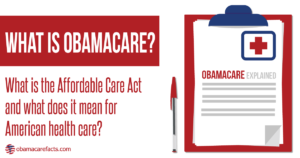The Wall Street Journal-
By ANDREW OGLES and LUKE HILGEMANN
Updated Oct. 6, 2016 12:50 p.m. ET
With insurers pulling back, half of Tennesseans covered under the plan are losing their coverage.
Tennessee is ground zero for ObamaCare’s nationwide implosion. Late last month the state insurance commissioner, Julie Mix McPeak, approved premium increases of up to 62% in a bid to save the exchange set up under the Affordable Care Act. “I would characterize the exchange market in Tennessee as very near collapse,” she said.
Then last week BlueCross BlueShield of Tennessee announced it would leave three of the state’s largest exchange markets—Nashville, Memphis and Knoxville. “We have experienced losses approaching $500 million over the course of three years on ACA plans,” the company said, “which is unsustainable.” As a result, more than 100,000 Tennesseans will be forced to seek out new coverage for 2017.
BlueCross is only the latest insurer to head for the exits. Community Health Alliance, the insurance co-op established under ObamaCare, is winding down due to financial failure, leaving 30,000 people without coverage. UnitedHealthcare said in April it is departing Tennessee’s exchange after significant losses. That’s another 41,000 people needing new plans.
All told, more than 60% of our state’s ObamaCare consumers will lose their coverage heading into 2017. When they go in search of a replacement plan, they will confront two unfortunate realities: a dearth of options and skyrocketing costs.
Seventy-three out of Tennessee’s 95 counties will have only one insurer on the exchange, meaning no meaningful competition whatsoever. In regions where BlueCross BlueShield is pulling out, there will be two remaining major carriers, Cigna and Humana. The only large metro area with more options will be Chattanooga.
Then there are the premiums. State regulators have already approved the highest annual rise in the nation, a weighted average of nearly 56%, according to data at ACASignups.net. The rate increases authorized in late August include an average of 62% for BlueCross BlueShield, 46% for Cigna and 44% for Humana. The latter two companies could ask to revise their rates upward depending on how many former BlueCross consumers they pick up.
The bottom line is that Tennesseans on ObamaCare must choose from fewer, and increasingly unaffordable, options. Some exchange buyers, those covered by subsidies, will bear only part of this additional cost. For the roughly 30,000 Tennesseans who are ineligible for subsidies, the higher price will come completely out of their own pockets. Not to mention that all ObamaCare consumers face rising deductibles, which aren’t covered by subsidies and can range up to $6,850 for the most “affordable” family plans.
It’s easy to imagine Commissioner McPeak’s fear of an outright exchange collapse coming true in the near future. The more unaffordable plans become, the angrier consumers will get. BlueCross BlueShield’s $500 million losses won’t disappear when the company leaves the market. Instead, the red ink will flow toward the remaining insurers as they pick up those customers. Cigna and Humana have not publicly said whether their exchange plans have turned a profit.
Naturally, this chain of events has Tennessee lawmakers clamoring for change. One of the loudest demands—coming from Democrats like Nashville’s U.S. Rep. Jim Cooper—is that the state double down on ObamaCare by expanding Medicaid. But this is a cure worse than the disease, since it would force many Tennesseans into a second-class health-care system while jeopardizing state finances for years to come.
More important, ObamaCare’s unraveling shows the danger of a one-size-fits-all federal program. What’s happening in Tennessee is only a nationwide harbinger. Every single neighboring state will have less competition on its ObamaCare exchanges next year. The entire state of Alabama will have only one insurer. Almost all are facing double-digit premium increases: in Mississippi a weighted average of 16%; in Kentucky 25%; in Georgia 33%.
These problems aren’t confined to the Southeast. ObamaCare exchange buyers will have only one option in nearly a third of American counties, according to an August report from the Henry J. Kaiser Family Foundation. That’s a 300% increase in single-option counties from last year. Twenty-five states and the District of Columbia have approved rates leading to average premium increases next year of over 26%.
If only Tennesseans were so lucky. Instead, the Volunteer State may be the first state where ObamaCare will collapse under its own weight—though if so, it won’t be the last.
Questions about Obamacare and reimbursement? Physician Credentialing and Revalidation ? or other changes in Medicare, Commercial Insurance, and Medicaid billing, credentialing and payments? Call the Firm Services at 512-243-6844


